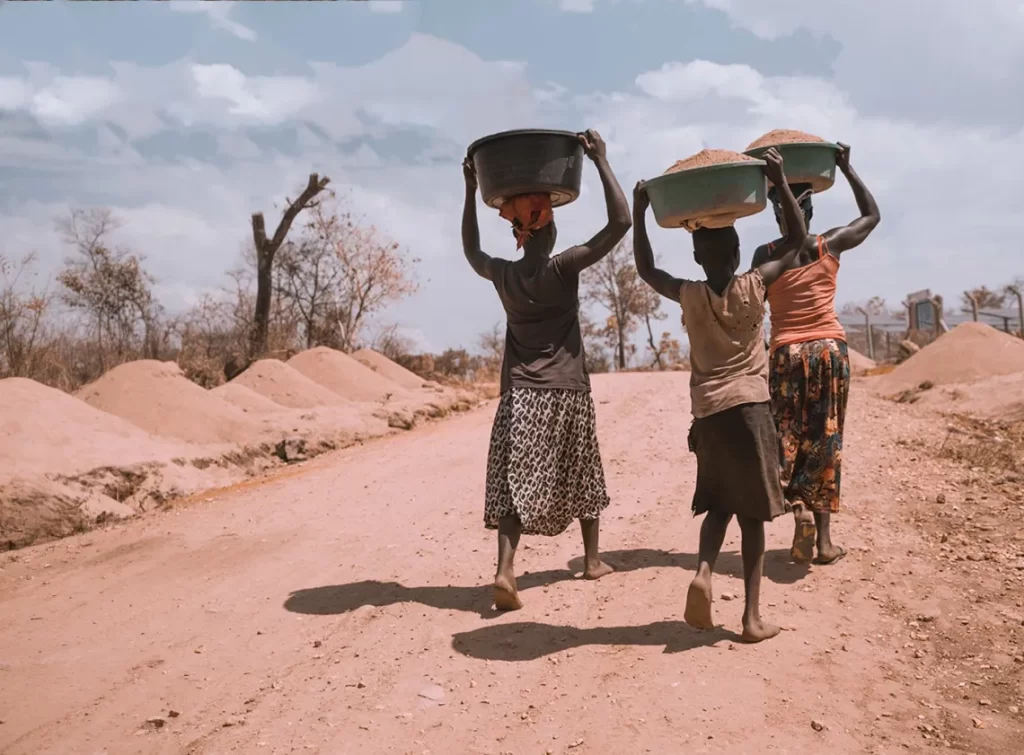The situation remains increasingly precarious as Tanzania persists in its battle against climate change, collaborating with diverse local and national institutions. The nation grapples with a surge in disasters, encompassing floods, mudslides, unpredictable drought periods, heightened temperatures, and rising sea levels. The gravity of these challenges underscores the urgency of ongoing efforts to address and mitigate the impacts of climate change.
Numerous initiatives, undertaken in collaboration with governmental and non-governmental organizations, are actively tackling the challenges of climate change in Tanzania. Particularly noteworthy are projects directly involving local communities through the Eco Village initiative. These projects aim to impact the lower climate change issue.
This initiative introduced by The European Union Global Climate Change Alliance Plus (GCCA+) aims to help the world’s most vulnerable countries address climate change. The industry increases the resilience of some of these communities by reducing poverty and increasing climate change adaptation in various areas in Tanzania.
The Eco-village also sought to improve understanding of climate change resilience strategies among key local, district, national, and international stakeholders for sustainable development.
Eco-villages in Tanzania have the potential to lead the way in adopting an integrated approach to climate mitigation and adaptation while adding to climate resiliency.
These actions range from developing and implementing green building practices, climate-friendly agriculture, restoring the natural environment, sequestering carbon and greenhouse gases through biochar and soil restoration, protecting and regenerating local water cycles, installing renewable energy and appropriate technologies, and responding to emergencies and crises with resilient and regenerative planning and rebuilding practices.
How Eco-Villages Fight Against Climate Change
Eco-villages in the Usambara Mountains have implemented rainwater harvesting systems through water management using readily available materials like corrugated iron sheets and drums. By reviving traditional irrigation techniques like “Shamba shamba” (contour farming) and promoting water conservation practices, they are ensuring water security for their inhabitants and surrounding ecosystems.
Eco-villages have promoted sustainable agriculture. For example, Horombo in the Kilimanjaro region embraces organic farming methods and agroforestry. They cultivate drought-resistant crops like millet and sorghum, utilize compost and biofertilizers, and practice crop rotation, increasing food security and soil health.
Also read Transforming Agriculture: Strategies for Addressing Food Production Crisis in East Africa.
In addition, Eco-villages are actively transitioning to renewable energy sources like solar power and biogas to reduce the burden of climate change. This reduces dependence on fossil fuels and empowers communities through energy independence. In Horombo, solar panels provide electricity for homes and community centres, while biogas digesters convert organic waste into energy for cooking.
Another area implemented by eco-villages is forestry and land management. Mpingo is actively involved in the Morogoro region’s reforestation and land management practices. They plant indigenous trees to combat soil erosion and desertification, creating green buffers against extreme weather events.
The Successes of Eco-Villages in Tanzania
A 2022 study by the University of Dar es Salaam found that eco-villages reduced vulnerability to climate change in the Usambara Mountains, which experienced 20% less crop loss during droughts than neighbouring villages. Also, eco-village residents demonstrate higher food security, water availability, and disaster preparedness levels than their non-eco-village counterparts.
Access to clean water, sanitation facilities, and locally grown organic food contributes to better health outcomes through eco-villages. A 2020 study by the World Health Organization found a 15% reduction in waterborne diseases in eco-villages compared to non-eco-villages in Tanzania.
The presence of the village influences communities through participatory decision-making and collective action, fostering a sense of ownership and responsibility and leading to more substantial and more resilient communities in environmental management. A 2021 study by the International Institute for Rural Reconstruction found that eco-villages in Tanzania had 20% higher rates of community participation in resource management than non-eco-villages.
One of the biggest challenges eco-villages face against fighting climate change is financial constraints because it requires investment in infrastructure, technology, training, and sustainable practices, and access to funding is often limited in various communities in Tanzania. This financial stranglehold hinders development, expansion, and, ultimately, the reach of their positive impact.
Implementing complex ecological solutions, such as rainwater harvesting, renewable energy systems, and agri-environment, requires professionals who can provide education at all levels. However, this lack of knowledge often exists within eco-village communities in the fight against climate change. These results from limited access to training programs, universities, and professionals with the skills to manage resources effectively, maintain technology, and adapt to changing environmental conditions.
Lack of supportive environmental policies, unclear land rights, and bureaucratic hurdles can create roadblocks for eco-villages and access to renewable energy resources, especially in a local village.
Government Initiatives over Eco-Village Towards Climate Change
Renewable Energy Integration: The Tanzanian government has taken strides in promoting renewable energy sources within Eco Villages to reduce the impact of climate change. This includes the installation of solar panels, wind turbines, and other clean energy technologies to reduce dependency on fossil fuels and mitigate greenhouse gas emissions. Initiatives involve assessing the percentage increase in renewable energy sources, carbon emissions reduction, and energy access improvements for rural communities.
Sustainable Farming Practices: Under Minister of Agriculture Hussein Bashed, the government contributes significantly to the new agriculture method practice for sustainable development and land use management to reduce greenhouse gas emissions. From that, Tanzanian Eco Villages have implemented agroecological procedures, emphasizing organic farming, crop diversification, and sustainable land management.
Community Engagement and Empowerment: Tanzania’s successful eco-village initiatives prioritize community involvement and empowerment, which involves education programs, training sessions, and the active participation of local communities in decision-making processes about climate mitigation in all genders.
Biodiversity Conservation: Preserving biodiversity is crucial for maintaining ecological balance, whereas Tanzania’s eco-villages often include afforestation, reforestation, and wildlife conservation programs.

